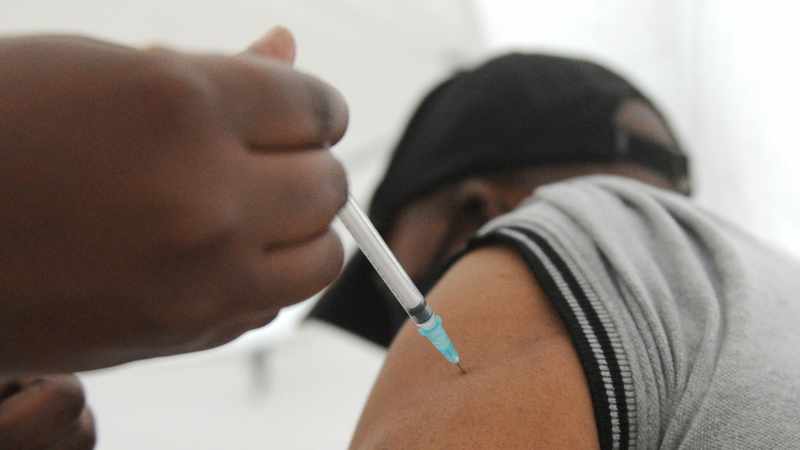
by Yogan Pillay and Sandhya Singh
The third wave of the Covid-19 pandemic is upon us with, Gauteng the most affected province. Daily, more than 10 000 people are testing positive, with many more asymptomatic. Hospital beds are filling up rapidly. People are tired of using masks, physically distancing and washing or sanitising hands. Those living in informal settlements, in overcrowded housing with limited access to water are unable to physically distance or wash their hands frequently.
Of great concern, too, are the large numbers of people who are overweight and obese, have diabetes and hypertension and other non-communicable diseases that make them especially vulnerable to Covid-19 infection, severe illness, possible hospitalization and even death. We also know that the elderly, especially those with existing risk factors, are more vulnerable to serious illness and death. We know this from the data from the first and second waves of pandemic.
The Institute for Health Metrics and Evaluation (IHME, 2017) reported on the number of deaths per risk factor in South Africa which included among the top four causes of death; 56 263 deaths due to high blood sugar; 55 647 due to high blood pressure and 44 740 due to obesity.
These findings confirm finding of South African Demographic and Health Survey conducted by the South African Medical Research Council in 2016. This survey found that more than 68% of women and 31% of men are either overweight or obese and that women between the ages of 45 and 64 and men 65 years and older are most likely to be overweight or obese.
Data on people hospitalised with Covid-19 in South Africa also indicated that people with diabetes and hypertension were most likely have severe disease and most likely to succumb to Covid-19. About 13% of women and 8% of those over 15 years of age have diabetes and a staggering 64% of women and 66% of men are pre-diabetic. Even more concerning is that 85% of those that are on medication for their diabetes do not have glucose levels under control. We also know that diabetes is associated with obesity and the survey also found that 23% of obese women and 24% of obese men were diabetic.
Hypertension is also associated with severe Covid disease. More than 46% of women and 44% of men are hypertensive in South Africa. Of these 80% of women and 87% of men have uncontrolled blood pressure. For diabetes and hypertension, the National Income Dynamic Studies confirm that less than 40% of people with these conditions are aware of that they have these conditions.
Apart from Covid-19, we are also seeing an association between HIV and non-communicable diseases. Studies have found high rates of hypertension, obesity, and diabetes in HIV-positive people living in rural KwaZulu-Natal. HIV-positive young people living in an urban community were found to have weight gain, elevated blood pressure and mental health challenges.
What do all these statistics tell us?
First, the distinction between communicable diseases like Covid-19 and HIV and non-communicable diseases like diabetes, hypertension and mental health conditions are false. Many people have more than one communicable and or non- non-communicable condition.
Second, non-communicable diseases are significant risk factors for serious Covid-19 illness. This means that while we take precautions to protect ourselves from Covid-19 infection, like use of masks, physical distancing and frequent sanitising of hands, we should also look out for the symptoms of diabetes and hypertension and seek screening, diagnosis and treatment. And if already diagnosed and on treatment to ensure that one is achieving effective control of their condition.
If overweight or obese, it means take care not to get infected plus starting on programmes that will help weight loss. As important is proper nutrition. Eating vegetables (especially leafy vegetables), fruit, whole grain, fish and lean poultry all help with insulin resistance and mitigates against diabetes.
Third, for those with co-morbidities, shielding and protection interventions are strongly recommended. This means that high risk individuals should reduce their contact with others significantly to reduce the possibility of contracting Covid-19.
Fourth, it is very important for those with co-morbidities, especially those over 60 years to get vaccinated against Covid-19. For those with HIV and co-morbidities it is very important to ensure that they are on antiretrovirals, are virally suppressed and are regularly screened for non-communicable diseases as well as mental health conditions.
There is much we can do to protect ourselves from both communicable and non-communicable diseases. For both health-care workers and the public at large, the first thing to know is that these diseases and conditions can co-exist and if they do they are more likely to cause serious illness, hospitalization and even avoidable mortality. All of these conditions are treatable and many are avoidable and preventable.
Get frequent medical checks – prevention and early treatment are good for our health. Keeping healthy will help us deal with Covid-19 and other pandemics.
* Pillay is the country director for the Clinton Health Access Initiative (CHAI) in South Africa and Singh is the director for the Non-communicable Diseases Programme at the National Health Department.